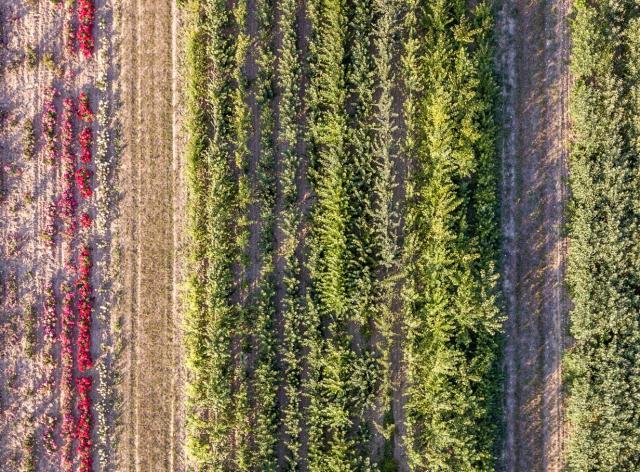The Territorial and Socio-environmental Transformation cluster brings together researchers who are committed to understanding and accompanying - or even stimulating - the transformations that human societies must undertake in the face of major contemporary challenges.
The cluster shares a conviction: scientific rigor is articulated with ethical and societal responsibility, in the spirit of post-normal science. Members recognize the complexity of the systems they study and assume that research must contribute to building more sustainable, just and resilient societies.
Our work invites us to rethink models of society based on two common denominators: a strong grounding in the field and a systemic reading of the relationships between humans and the environment. In a context of systemic crises, we make the territory, understood as "an elaborated space, socially constructed, culturally marked and institutionally regulated" (Lopez & Muchnik, 1997), the central concept of our analyses, both a place for observation and analysis but also sometimes for action and the co-construction of transformations.
The members of the cluster share:
- The recognition of the challenges of sustainability and systemic crises, envisaged in their relational dimension, and the need to respond to them collectively by orienting research towards a normative and desirable horizon.
- A field-based approach, attentive to locally rooted realities, mobilizing qualitative and quantitative approaches depending on the context, in Europe as elsewhere.
- A reflexive and committed posture, where researchers recognize their place in the dynamics studied, with degrees of involvement ranging from observation to participation, collaboration or action research.
Behind this shared identity unfolds a diversity of thematic axes:
- Rural territories and territorial transformations : territorial transformations involve a redefinition of "rural development", highlighting the specific features and essential functions of rural life: offering a quality environment, promoting sustainable agriculture and food, more participative forms of governance, etc. The territorialization of food systems constitutes a central axis, at the intersection of the relationships between biodiversity, agriculture and Nature.
- Migration dynamics and environmental vulnerabilities: the study of interactions between environmental change, human mobility, risks and community resilience contributes to the design of more equitable adaptation policies.
- Health geography, the Human-Nature relationship and the One Health approach: the analysis of links between health, environment and socio-economic factors contributes to the understanding of territorial inequalities. Adopting a One Health perspective, the study of epidemic risk perception and Human-Nature relations is part of an approach centered on local co-creation and reflexivity.
- Environmental humanities: exploring the representations, discourses and subjectivities through which actors who express their relationship to the environment, mobilizing big data and quantitative and textual methods is used to access actors' subjectivities as lived experiences.
These axes, complementary in their approaches and fields, reflect the same ambition: to produce grounded knowledge at the service of territorial and socio-environmental transformations.
Current research projects
- 2019-2024: Socioeconomic development, community dynamics, and cultural recognition in Ocongate. A multidisciplinary analysis of the challenges of economic modernization in an Andean region | S. Leyens
- 2020-2023: Developing transformative urban adaptation strategies based on cell phone data | S. Dujardin & C. Linard
- 2019-2021: Support Unit for the Development of Geographical Indications and Products of Differentiated Quality | N. Aucuit & I. Parmentier
- 2016-2021: Social justice implications of land use change in the Philippines uplands : Analysis of the Socio-economic drivers and impacts on the land and its people (LUCID) | S. Leyens


